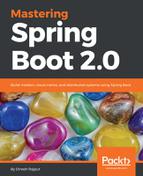In the previous section, we discussed the container-oriented approach of an application's development and deployment, and its benefits. Docker is one of the container-implementation and software platforms for containerization. Due to the popularity of Docker, sometimes containerization is referred to as Dockerization. Docker is an open-source computer program designed to assist with creating, deploying, and running applications using containers. Containers allow the developers to partition all the different parts of an application, such as libraries, dependencies, and exceptions, and then store it in the form of a package. This process of containerization assures the developer that the application will execute on any Linux machine, despite the change in settings between the machine the application was made on and the machine it is supposed to be tested on.
Due to being open source, Docker can also be manipulated to meet the needs of any particular user. And anyone can contribute to it, making it more and more suitable for use, improving its condition, and adding different useful features to it.
Docker was originally developed for the Linux operating system, making use of the isolating features of the Linux Kernel, for example, groups and namespaces of the kernels. The filing systems available in Linux, such as OverlayFS, allow different containers to run in a single Linux instance instead of bearing the overhead of the setup, installation, and maintenance of virtual machines. Docker can somewhat be perceived as a virtual machine but, unlike a VM, Docker does not create a whole virtual operating system. In fact, it lets the applications use the machine's kernel, only supplying the application requirements that are not already in the machine. While providing the application a perfect environment to execute, it also provides a significant performance boost and reduces the memory space taken up by the application.
Docker is a software tool that is not only useful for developers, but also for system administrators, which makes it part of the DevOps toolchain. Docker allows developers to concentrate on their coding rather than being worried about whether the code will run on certain systems or not, and the system administrators can rest easy about not having to be worried about system specifications because Docker allows the application to run on any system. Docker also provides flexibility and reduces the number of systems required, due to its small footprints and even lower overhead.
Docker provides security to the applications executing in the shared environment, but containers are not able to replace proper security measures required by any application. However, if Docker is not run on a system shared by multiple parties, and the machine is running good security practices for the containers, Docker security does not remain your concern. Some people also confuse Docker as an alternative to virtual machines, but it is really not that simple.
